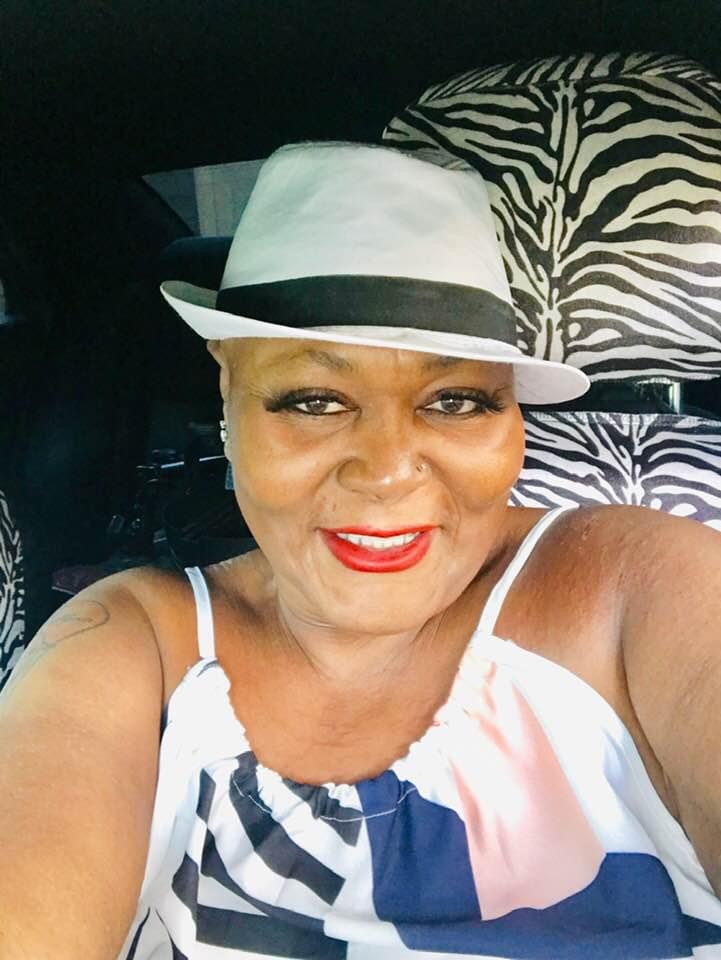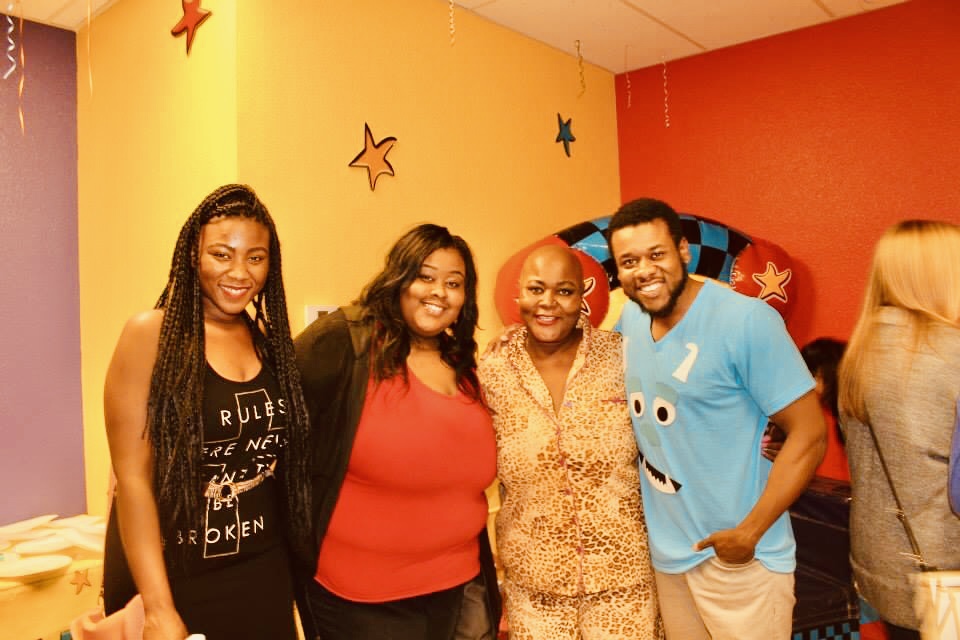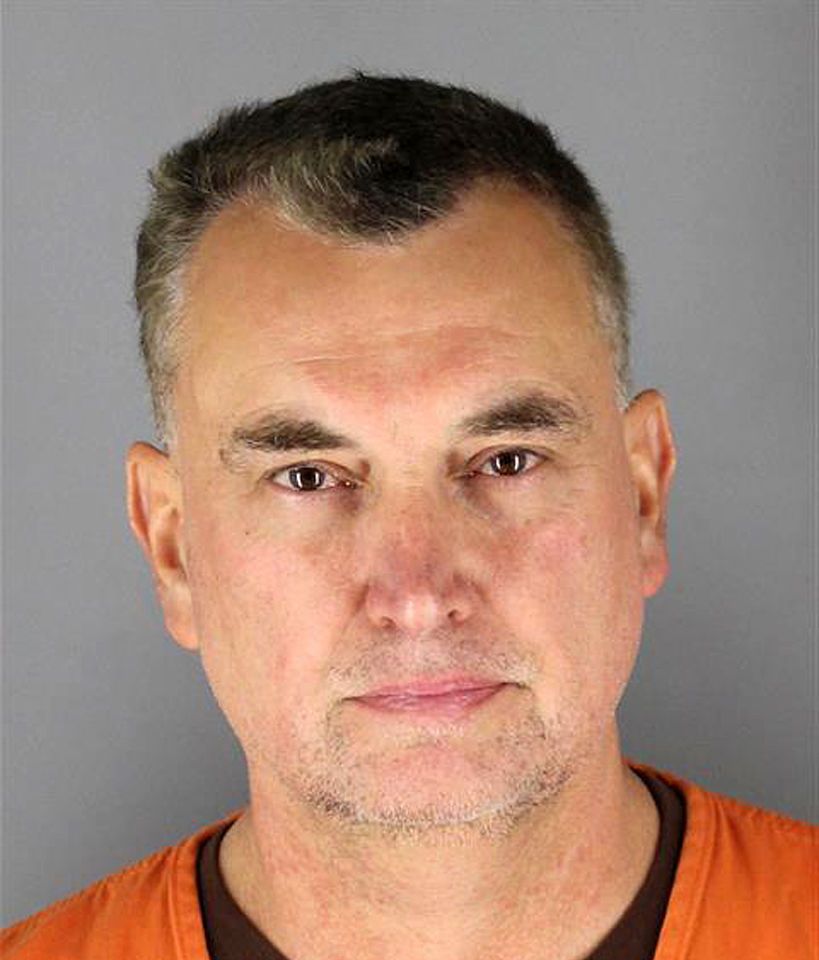Life After Hepatitis C: Breaking Free from Lifelong Trauma
Life After Hepatitis C: How Ruby Manuel Broke Free From Lifelong Trauma

Source: Courtesy of Ruby Manuel
When Ruby Manuel was diagnosed with hepatitis C, she never imagined that it would lead to the life she has today. Now cured of hep C for the better part of the last decade, Ms. Manuel is an author and playwright living in Atlanta, Georgia.
On the long road from diagnosis to recovery, Ms. Manuel was forced to face her trauma and found the strength to overcome the fear and take control of her destiny. Her story is one of hope and renewal. “It’s all about being the driving force in your own life. You have to take control. Because fear keeps us from doing amazing things,” she said.
The Silent Epidemic
An estimated 2.5 to 4.7 million people are living with hepatitis C in the United States. However, levels of testing and treatment are lacking. Alarmingly, at least half (51%) of people living with hep C do not know that they have the virus.
The virus’ impact is significant. Dubbed the “silent epidemic,” hep C has caused more deaths than all other reportable infectious diseases combined since 2012, according to HHS.
What’s more, the research illustrates that Black patients diagnosed with HCV (hepatitis C virus) suffer worse outcomes than their white counterparts, and have less access to testing and treatment overall.
These outcomes can be prevented. Modern treatment options available today can cure most people with hep C in just eight to twelve weeks, according to the CDC.
Diagnosis and a Long Road Ahead
Ms. Manuel was diagnosed with hepatitis C in 2000. She was in her forties then. “I was so afraid. Immediately I thought that my time was up. Because I wasn’t familiar with it. Just really nervous and afraid for my future,” she said.
Ms. Manuel had contracted hep C as a result of substance use disorder involving alcohol and crack cocaine, she said. While alcohol consumption alone does not cause a person to be infected with hep C, excessive drinking can increase the risk of developing HCV infection and certainly contributes to liver damage.
“I was in a really dark place,” she said. “I thought to myself, I’m just going to live as clean as I can right now, to enhance longevity if I may.”
Determined to recover, Ms. Manuel quit all substances and pursued a healthy lifestyle. But when it came to seeking treatment, she was told by her doctor that medication would not help at that stage. “They said that because I didn’t have any liver damage, the treatment wouldn’t do me any good,” she said.
Several years following her diagnosis, Ms. Manuel reached stage 3: cirrhosis of the liver. She was one step away from stage 4, end-stage hepatitis C, which occurs when the liver can no longer function properly. “The fear was overwhelming,” she said. “Especially when it went from 0 to stage 3. All of sudden it just took off. And I think it was because I was under a lot of stress.”
At the time, hep C treatment options were few and caused serious side effects. It was only until around 2016 that viable treatments became available to patients.
Despite the lack of treatment options, Ms. Manuel was able to undergo treatment for hep C at stage 3, but it failed. “I was devastated when they told me it hadn’t worked,” she said. “I was afraid each and every day of my life.”

Source: Courtesy of Ruby Manuel
A Glimmer of Hope
Fast forward to 2014. Ms. Manuel was ready to give up hope when she got a call from her cousin, who had seen an ad for Harvoni on TV. “I was so happy to even have the possibility of maybe getting this medication,” she said.
But her optimism didn’t last. Since it was a new drug, Harvoni was not readily available at the time. “I called my doctors and they didn’t know anything,” she said. “They didn’t have it in their office, they didn’t have it right then.”
Ms. Manuel was told to call the state of California for help, but was rejected for the medication because she had received treatment nine years prior—the one which had failed. “Because of my age and because I’d had treatment before, I wasn’t eligible for this one. I was devastated,” she said.
This was a disappointing setback, but the mother of three was determined to get the treatment she needed. “I decided to call the same lady at the state of California every morning at 8:30, and I did that for three months straight,” she said. She was rejected for the treatment again and again.
But finally, thanks to her persistence, the state approved her for the medication. Within about three weeks, Ms. Manuel went on the treatment. “I was determined to advocate for myself and get some help, because I didn’t want to die,” she said. “I was in stage 3 and there’s only four stages.”
Fighting for Her Life
The first month of treatment was the most challenging. The medication damaged Ms. Manuel’s skin and fingernails. But she pushed through, and it became easier with time.
“The first month, it was really challenging for me to get used to the medication,” she said. “It did a lot of damage to my skin, it lifted my fingernails and everything, but I hung in there with it because I was just praying that it would work.”
The intensive treatment regimen involved daily injections and daily pills. “It was really difficult in the beginning. I wasn’t eating very much, I was just really tired,” she said. “Going into my third month, I started to get used to it. It started to become less challenging everyday to get up and face taking the medication.”
After six months of following her treatment regimen, Ms. Manuel was cleared of the hep C virus. She was cured.
Writing Through Healing
Ms. Manuel’s persistence and determination were key to her survival. Upon learning that she was stage 3, a moment of clarity set off her healing journey.
“One day, I was standing in my bathroom, and this is when I found out that I was in phase 3. I was looking at myself in the mirror, and I decided that I wanted to live. I wasn’t going to give up,” she said. “I was tired of abusing myself and keeping myself from advancing. Sometimes our thoughts stop us from getting where we need to be. Writing helped to move myself out of my own way, if that makes sense.”
Ms. Manuel had been writing since she was eight years old. But this time around, something clicked. “I would write, but I always hid my words. I wasn’t a person that expressed what I felt. I internalized everything. So I started back writing. I felt like I had enough and I wanted to live,” she said.
Returning to the pen proved to be a powerful element of Ms. Manuel’s healing journey and she has continued her writing practice to this day. “With me writing, I forgot about myself and what I was going through. I began to get into the characters that I was writing about in my books. And I started to smile,” she said.
Writing allowed her to shed the fear that she carried for so long. “I was so tired of being afraid. And when I started to write, the fear just started coming out in my words,” she said.
During the six-month period of undergoing treatment for hep C, Ms. Manuel began writing The Suitcase, her first novel. The Arkansas native has since relocated to Atlanta, Georgia to pursue her dream of becoming a playwright.
“I went on a journey of reinventing myself,” she said. “When I came off of treatment, I kept moving along towards the goals that I wanted to do, which was become a playwright, become a producer, and do the things that I wanted to do in my life. So it was worth me living for it.”
The Suitcase has since been adapted for the stage and is in pre-production for a film adaptation. Ms. Manuel has authored four books including her autobiography If Not Today, Maybe Tomorrow.
Words for Those Living with Hep C
Ms. Manuel transformed her pain and survived to tell her story. “Throughout my life I suffered a lot of trauma because, I don’t know, not working hard enough for myself, sitting back and letting things happen. I decided to fight,” she said. “I’ve just been working on myself and God has been working right here with me.”
Now on the other side of hep C, Ms. Manuel is determined to tell her story to inspire hope in those who are living with it. “What I would want someone to know, when you’re diagnosed with hep C, is not to panic, not to give up,” she said. “Do your best not to stress. Because stressing makes things worse.”
While treatment for hep C was significantly harder to access in the past, today a chance for a healthy life is more attainable than ever, with a greater variety of medication choices and faster results.
“It’s not the end of your life. Especially now, people are living with it, people are getting the medication, and they’re getting healed from it,” said Ms. Manuel. “Get your plan together. Just make sure you drop everything and start taking care of yourself.”
Now, more than 20 years since Ms. Manuel first learned that she had hepatitis C, she is able to enjoy life as a published author and playwright, and most of all, a proud mother and grandmother.
“I take time to smell all of the roses, hear the birds chirping. Because I see it from a different lens than I did before,” she said. “I’m just really grateful. I’m grateful for the medication, I’m grateful that I kept fighting for it, I’m grateful that I’m here to see my four grandchildren. Life is beautiful.”
SEE ALSO:
Hepatitis C Statistics By Race: Black Facts By The Numbers
Hepatitis C Symptoms: What They Are And How They Differ From Hepatitis A And B

















